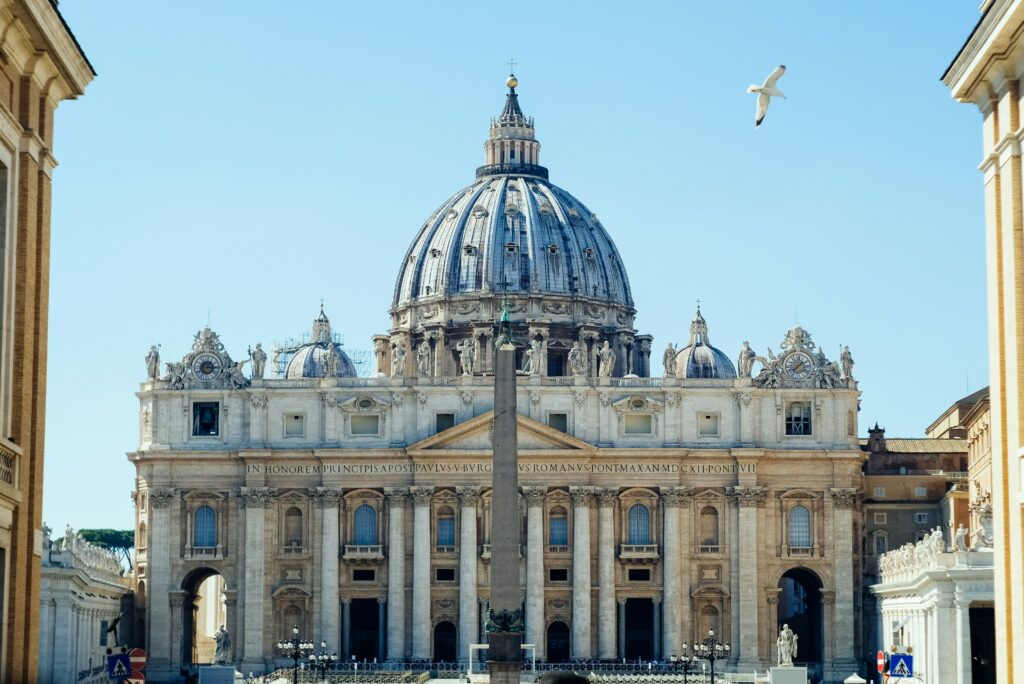On the second day of their deliberations, Catholic cardinals elected Robert Francis Prevost as the new pope. The white smoke rose above the Sistine Chapel at 6 p.m., signaling to the world that a decision had been made. Shortly after, Cardinal Prevost appeared on the balcony of St. Peter’s Basilica to greet the crowd of more than 100,000 people.
“Peace be with you all,” he said warmly, beginning his first words as Pope Leo XIV. He paid tribute to his predecessor, Pope Francis, who passed away on April 21, and emphasized his own Augustinian roots. “We walk together toward the homeland God has prepared,” he added.
From Missionary to Pope: A Journey of Service
Born in Chicago, the 69-year-old Pope served for many years as a missionary and later as archbishop in Peru. He gained Peruvian citizenship in 2015 and built deep connections throughout Latin America. In 2023, Pope Francis brought him to Rome to lead the Vatican office responsible for appointing bishops across the world.
Cardinals were drawn to Prevost’s calm leadership and wide international experience. His fluency in Spanish, English, Italian, and French helped him connect with Church leaders from all continents.
As one cardinal commented anonymously, “He understands both the global South and the global North. That balance is rare and valuable right now.”
Balancing Reform and Doctrine
Pope Leo XIV is seen as a reformer with strong convictions. Under Pope Francis, he played a key role in introducing new ideas, including adding women to the panels that advise on bishop appointments. He is open to discussion but firm on certain teachings.
He remains opposed to the ordination of women as deacons and has described abortion as ‘a form of murder’. In 2012, he criticized what he saw as media promotion of the “homosexual lifestyle,” marking a contrast to the more inclusive tone of his predecessor.
Still, Leo XIV prefers dialogue over division. Church analysts believe he will continue reforms started under Francis but will also set clearer limits on how far change can go.
“He speaks gently but does not shift his moral views,” said one Vatican expert. “That makes him both a bridge-builder and a guardian of tradition.”
A Voice for the Planet and the Poor
Pope Leo XIV has already signaled a strong commitment to climate action. In his first remarks, he warned against “unchecked technology and human pride” and called on all nations to take real steps to address the climate crisis. He praised Pope Francis’s environmental efforts, especially the encyclical Laudato Si’, which focused on care for the Earth.
At a time when many parts of the world are facing climate-related disasters, his voice could add moral weight to international discussions.
Leading a Church in Transition
The Catholic Church, with over 1.3 billion members, faces complex challenges. These include declining attendance in some countries, rising persecution in others, and debates over doctrine and inclusion. Pope Leo XIV begins his leadership during a time of deep change and reflection.
Observers expect him to focus on unity within the Church, healing divisions, and ensuring global representation in Vatican leadership. His record suggests he may place special attention on the Global South, especially Latin America and Africa, where the Church is growing fast.
His new role is also likely to involve addressing urgent geopolitical tensions and continuing efforts to promote peace, migration support, and interfaith dialogue.
With the election of Pope Leo XIV, the Church turns a page in its long history. His words, background, and actions so far suggest a focus on humility, stability, and spiritual renewal. His ability to hold together tradition and reform will shape the future of Catholicism in the years ahead.
